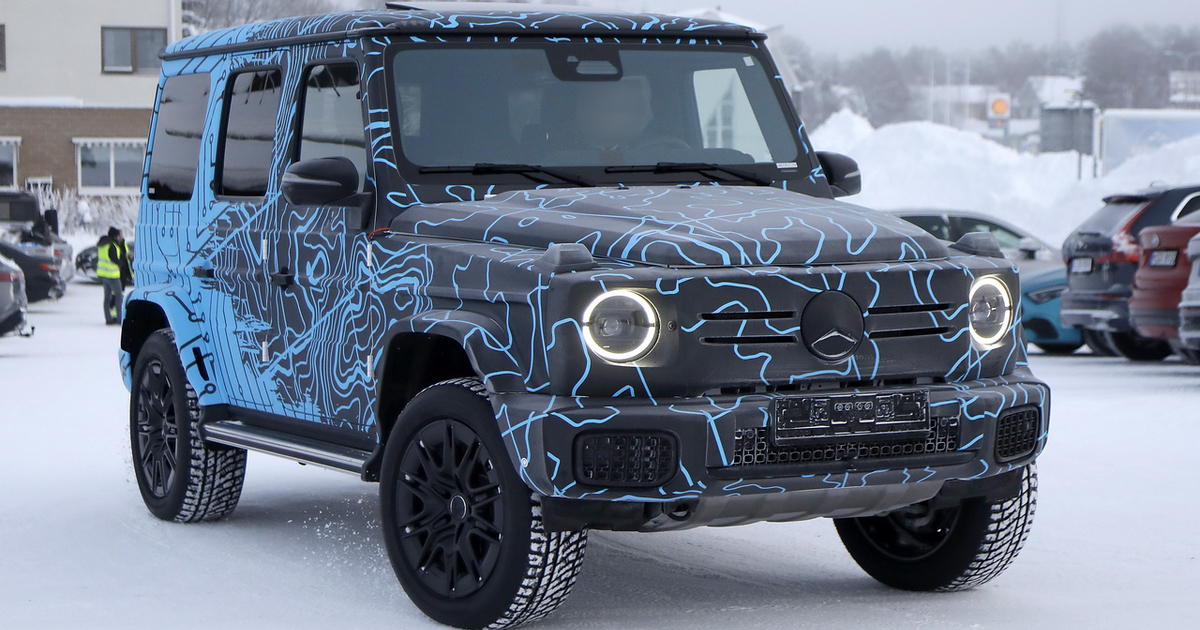
Mercedes-Benz is putting the electric G-Class through silent paces in the Arctic ahead of the off-roader’s debut in the U.S. next year.
The new model, previewed as the Concept EQG in 2021, is expected to deliver 430 kW of combined power from four motors. The low RPM torque in motors makes battery electric vehicles especially capable off-road.
Mercedes said the electric G-Class will carry a new battery that is 20 to 40 percent more energy dense, helping reduce vehicle weight or extend driving range.
“Delivering such a high energy density is a true game-changer and allows us to think in completely new directions when developing future electric cars,” Mercedes Chief Technology Officer Markus Schaefer said last year.
Originally built for military and safari applications, the G-Class has captured the Instagram accounts of rap and reality TV stars. Sales in the U.S. — the G-Class’ largest market — peaked in 2021 at 8,523 vehicles.
The electric G-Class ticks multiple boxes for Mercedes-Benz.
The zero-emission powertrain allows G-wagen customers to seek adventure while leaving a light environmental footprint. In the most potent AMG version, the combustion engine G class has CO2 emissions as high as 304 grams per kilometer.
“High-end electric trucks represent the conspicuous consumption wealthy buyers crave without the baggage of a carbon-spewing large engine under the hood,” said Sam Fiorani, vice president at AutoForecast Solutions.
The six-figure electric G-Class also dovetails with Mercedes’ strategic pivot toward the top-end of the luxury market to maximize profit margins. The automaker has reoriented its focus toward the high-performance AMG, uber-luxury Maybach brands and the EQ electric lineup.
“With Tesla lowering prices to appeal to a wider market, Mercedes-Benz sees an opening at the top end of the market for an electric flagship priced above $200,000,” Fiorani said.
The battery-powered G-Class retains its fossil-fuel-powered cousin’s ladder-frame chassis and chunky look, but the partially closed-off grille hints at the powertrain.
Spy shots of the prototype in a wrap representing Austria’s Schöckl mountain’s topography reveal a new front bumper and fender flares.
The rear bumper features a revised central area that houses the license plate holder. Aero wheels help minimize drag and extend driving range.
Production begins in early 2024 in Graz, Austria, with U.S. deliveries starting that summer, Fiorani said.